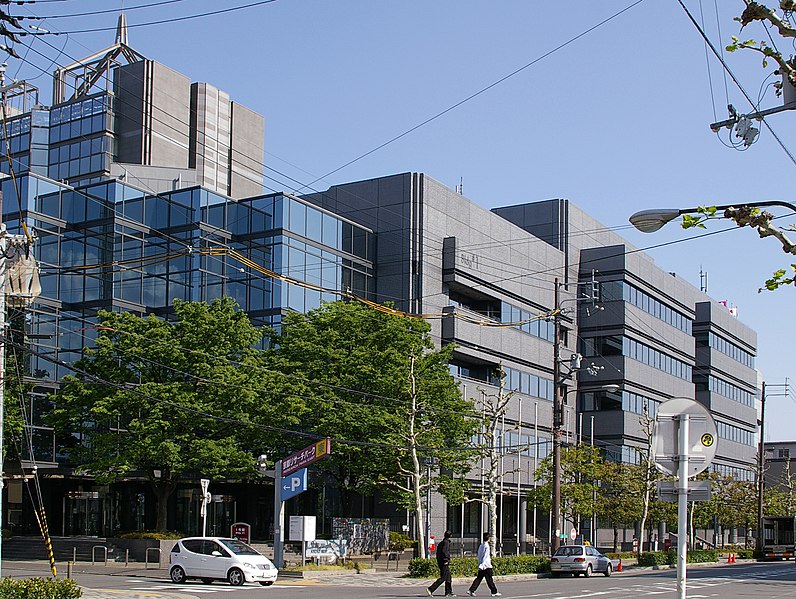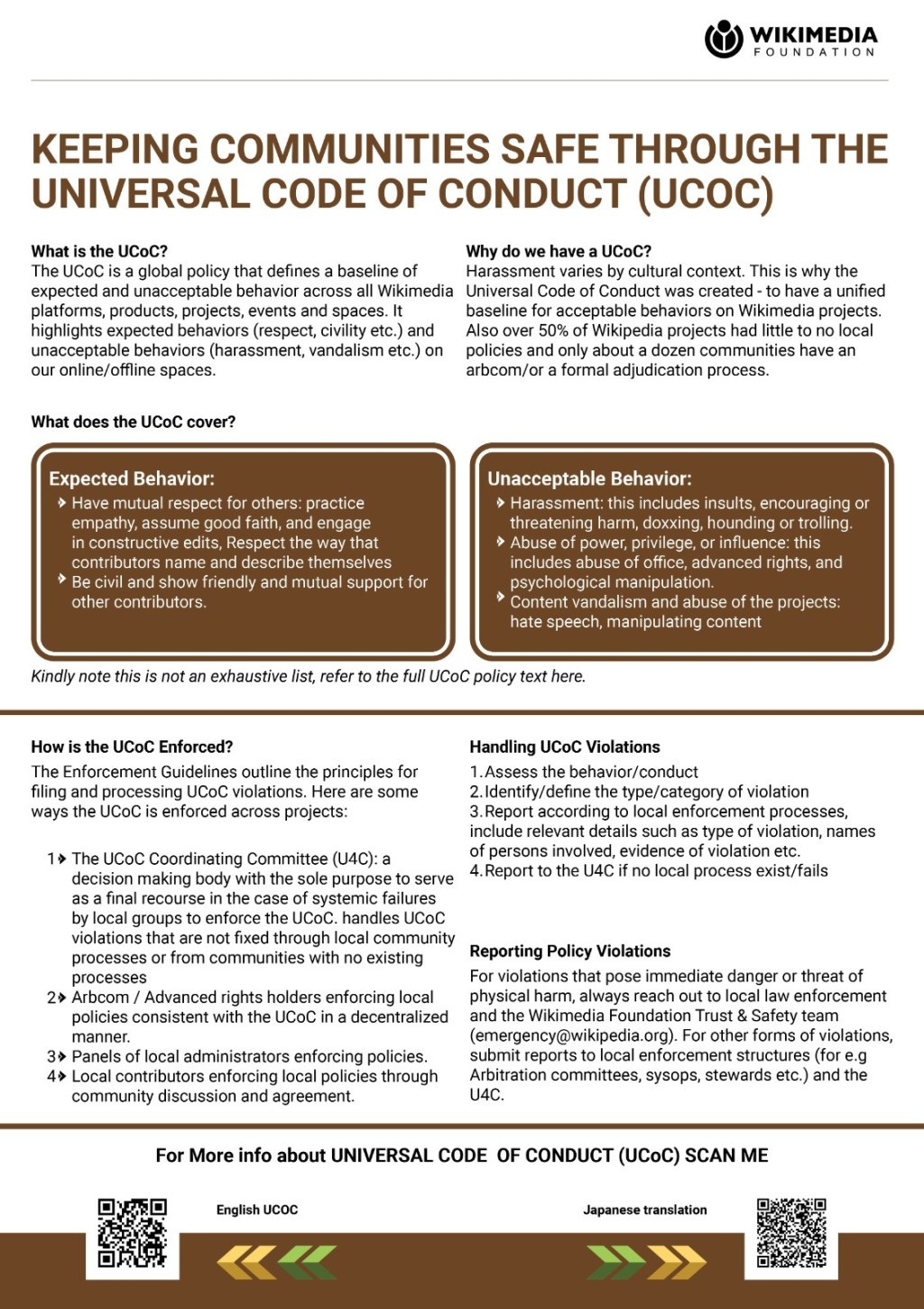
Kyoto Research Park, the venue for OSC Kyoto, CC BY-SA 3.0 Via Wikimedia Commonshttps://commons.wikimedia.org/wiki/File:Kyoto-Research-Park-01.jpg
I’d like to report from a different direction regarding our participation in the Open-Source Conference Kyoto on July 27, 2024, which Wadakuramon and VZP10224 have already expressed in Diff.
That is, in terms of safety initiatives at the event.
First, the Open-Source Conference (“OSC”) had the following prerequisites:
- Several prospective participants are residents of the Kanto and Tokai regions. The trip to Kyoto, the venue of the event, is a bit far for a day trip, and many of the members need accommodation.
- This time, minor will also participate.
Simply stated, it involves overnight stays and minors participate.
Safety measures are essential, especially since a minor will be participating.
For this reason, we worked on event safety more than a month before the OSC was held on July 27.
First, A (pseudonym), a minor living in the Kanto area, has expressed his participation in the event. This event would be A’s first solo trip on the Shinkansen bullet train. Based on his usual comments and behavior, we believed that A was fully capable of making a solo domestic trip.
Nevertheless, since he is a minor, we needed to get his parents’ approval as a user group (UG).
At the same time, it is important to note that we are now a “Recognized User Group”. Any accident or trouble could affect many people, including the Japanese-language community, JaWp, the Wikimedia Foundation, and Wikimedia movement contributors.
What I recalled while making a list of possible risks
First, I have listed all the possible risks.
The risks are endless if you think about it. As for earthquakes, natural disasters, fires, accidents, and crimes, we should ask professionals such as local governments for disasters, fire departments for fires and accidents, and police for crimes.
I was a bit nervous about incidents and problems at events. This is partly because I remembered an “incident” at a small event I was involved in a long time ago.
An “incident” at a small event organized by amateurs
A long time ago, I helped a small-scale coterie magazine event organized by a friend of mine. We had not attended a company-sponsored event, nor did anyone have any experience in directing events. We were very young and too optimistic at the time. In other words, we didn’t consider the possibility of trouble at all.
The event itself was about entertainment, with about 20 participants enjoying themselves in a relaxed atmosphere.
However, a person with a chronic illness had a seizure with severe convulsions. All I remember is that the participants were rolling around and convulsing, and I, being on the organizer’s side, was just, my mind went blank. Fortunately, one of the participants was a nurse, who calmly handled the situation, and we could manage to get it over with. Later the person said that s/he did not take the medication to control her/his chronic illness because it would make her/him drowsy. S/he was looking forward to the event so much.
List possible risks, consider countermeasures, and compile into a draft leaflet as a template.
I made a list of potentially risky matters in a Google doc and created a leaflet for other members of the group and A’s parents to look at.
Perhaps because of the experience I had, the first “risk matter” that came to mind was:
- illness/sickness
For those who have pre-existing medical issues, we have decided to ask them to confirm by themselves the medications they are taking on a regular basis. And we asked them to let us know in advance if they had any further concerns.
※ Reflections at this point: It might be an idea to ask them if they have a “medication book” or “family doctor”. We should respect their privacy. So, asking them: “Please keep your medication book, health insurance card, family doctor contact information in one place.” might be better.
Getting lost, not being able to reach the venue, getting separated from the members
- What is important in participating in the event is to have clear information about OSC Kyoto, its organizers, as well as the meeting time, meeting place, and lodging location. These should be clearly written in the leaflet.
- About Accommodations: Since we needed to accommodate this time, we rented a house inn near the “Kyoto Research Park,” the venue of the event, which can accommodate about 10 people. There are three rooms, and we decided to divide the rooms strictly by gender.
- As a matter of future policy, we will always have separate rooms for opposite-sex guests except for married couples and family members. If there are opportunities for LGBT and other genders to participate, they will need to be considered separately.
- In addition, we filled in the names and mobile phone numbers of three UG elders as responsible persons. These were also the emergency contacts.
- Even if individual actions are taken, close contact and exchange of information will reduce risks. In case of emergency, I asked him to take a cab.
Possibility of problems between participants-UCoC and「Friendly Space Policy for Wikimedia Foundation Events」
We read 2 policies “Wikimedia Foundation Universal Code of Conduct (UCoC)” and “Friendly Space Policy for Wikimedia Foundation Events” of the Policy:Main for events safety.
- The Universal Code of Conduct (UCoC) and event safety measures are mainly designed to prevent ‘harassment and undesirable behavior’, i.e., to prevent ‘participants from harming other participants in any way’.
- In this regard, we copy-pasted the “Universal Code of Conduct” and the “Where to Be Friendly Policy” and transcribed them into a leaflet.
Participants are encouraged to read these two codes and policies. In the unlikely event that someone violates the rules too much, we may ban them from the event.
Honestly, the scariest thing was heating stroke.
As you know, the summer heat in Kyoto is harsh. The forecasted high temperature for the week at OSC Kyoto was reaching 40 degrees Celsius. Personally, I was most concerned about heat stroke.
According to a member familiar with Kyoto, “The OSC venue, the station and the lodge are close, and they are air-conditioned, so we don’t have to worry that much.
I certainly might had worried too much, since the Kyoto Research Park was a building with a collection of office seminar rooms, a rest area, and a convenience store. I prepared tablets containing salt and glucose to prevent heat stroke, among other things.
Online safety meetings with members
About a month before the OSC, we had an online meeting with the other members of the group to review the leaflet draft.
Basically, this event was a participation in OSC Kyoto, an event organized by Biginet Co. Therefore, we decided that any problems that occurred at OSC Kyoto events would be discussed with the OSC Kyoto event staff.
Another thing that was decided was the prohibition of alcohol at events.
After the OSC Kyoto event, a light launch party and social gathering was scheduled, where beer would be served. Since a minor would be present, it was decided that alcohol should not be allowed always.
This may seem fine when all members are over 20 years old, but it can certainly cause trouble. A high percentage of people do not have alcohol-degrading enzymes in some parts of East Asia. Along with the health effects, it’s known that when you are under the influence of alcohol, you are in a state of mind that makes you more prone to trouble.
Therefore, as a rule, it is prohibited among members.
Adult members who like alcohol are free to drink after saying goodbye, as long as s/he doesn’t drive a car.
After this online meeting, the participation leaflet was further rewritten on our Slack. I asked A to ask his parents to look at the leaflet for participation.
Online conversation with A’s parent
After an online safety meeting among UG members, one of A’s parent offered to have an online meeting with the user group.
Parents do not know who we are. Two adult members, including myself, had an online conversation with A and his parent. I also introduced the purpose and activities of Wikimedia, as well as the “UCoC” and the “Safe Place Policy.
Fortunately, the parent agreed, as she wanted A to have many experiences.
We asked parents for emergency contact information just in case and promised to keep in touch with them twice a day, including when A arrived on site.
The day of the event and afterwards
In advance, we prepared leaflets on a sheet of A4 paper with the English and Japanese versions of UCoC each side and handed them out at the session and the booth.
The event ended successfully.
A said he had a place in Kyoto he wanted to stop by on his way home. I asked where to stop, he said about a very geeky highly intelligent museum. Even veteran librarian Wadakuramon has never heard of it. That’s a Wikimedian indeed.
We believe that events would have unexpected situations. We plan to continue working on further safety measures.
We have received this completed poster created by T & S before this translating. The version we used at Kyoto was text of this beautiful, perfect version. We are truly grateful for this extra work by the member of T & S. This work is with us at each and every single event and other opportunity.


Can you help us translate this article?
In order for this article to reach as many people as possible we would like your help. Can you translate this article to get the message out?
Start translation